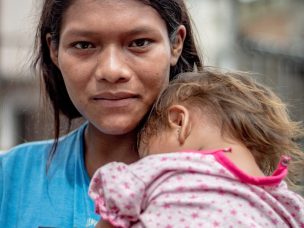Contributions
Obesity and Prostate Cancer Detection
Although patients with obesity have demonstrated lower incidences of prostate cancer, cancer progression and mortality are much higher in these cases. This study sought to understand the role of obesity in cases of prostate cancer, including why patients with obesity are diagnosed less often but with increased mortality rates. The researchers used three nationally representative...
Research Lacking on Prostate Cancer in Transgender Women
Prostate cancer in the transgender female population is an area lacking research, adequate clinical trials, and resources for medical professionals. This deficit of knowledge and difficulty accessing services puts the transgender female population at a disadvantage when it comes to being diagnosed with and treated for prostate cancer. To date, there have only been ten...
Indigenous Populations Underrepresented in Alzheimer’s Disease Clinical Trials
Dealing with diversity and adequate representation in Alzheimer’s Disease clinical trials is especially pressing due to the large number of individuals with this disease and the very high failure rate (99.6%) of new drugs. This literature review, published in the Journal of Alzheimer’s Disease, analyzes the racial and sex-based disparities in Alzheimer’s clinical trials over...
Glioma Clinical Trials Found to Have Diverse Enrollment
Under-enrollment in clinical trials can significantly impact the development of appropriate treatment options, reducing the validity of researched outcomes. In many cases, it can also result in the early termination of the research studies themselves. This study, published in the Journal of Neuro-Oncology, analyzes the impact of race/ethnicity and socioeconomic status on enrollment rates in...
The Impact of COVID-19 on Clinical Research in Diverse Populations
Randomized clinical trials are an essential component of the development and proper deployment of novel therapies. However, there are many disparities in access to and participation in clinical trials throughout the United States. Moreover, the COVID-19 pandemic has resulted in large-scale destabilization, which has extended to clinical trials. This article, published in Ethnicity & Disease,...
Gynecologic Cancer Clinical Trial Guidelines During COVID-19
As a result of the COVID-19 pandemic, clinical trials have been put in a very complex position. The standard ways that many clinical trials are run are difficult to maintain with strained access to supplies, destabilized schedules, and additional health regulations. This article, published in Gynecologic Oncology, provides an analysis of best practices for conducting...
Reasons for Low Cancer Clinical Trial Enrollment
Patient participation rates in clinical trials can directly impact future patient outcomes, as high enrollment is necessary for understanding the effects of novel therapies. In addition to sheer enrollment numbers, clinical trial enrollment must also adequately represent the population in terms of race, age, and other factors. Unfortunately, there are currently significant disparities in cancer...
Poverty vs. Pollution in Asthma Incidence
Despite a downward trend in the prevalence of asthma in children, a troubling increase in asthma disparities between minority and non-minority individuals is being observed. The reasons for these disparities are still not well understood. To investigate this observation, researchers in Houston, Texas compared economic, demographic, and environmental data with asthma diagnoses to find possible...
Health Literacy, Socioeconomic Status, and Asthma Disparities
The fact that racial/ethnic minorities experience higher asthma incidence and worse asthma outcomes than their white counterparts has been well documented; however, the etiologies of this disparity are less understood. Asthma is a complex disease with many factors at play in its development and management, making it difficult to pinpoint what causes it to occur...








